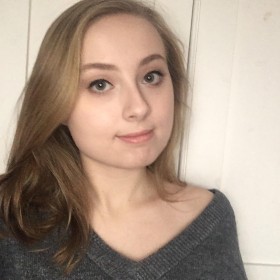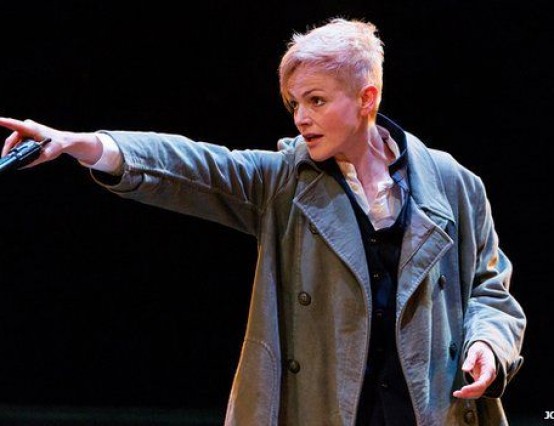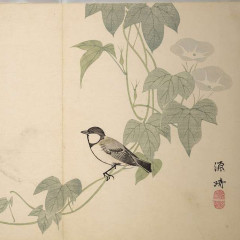Hi Nikesh, thanks so much for agreeing to talk to Voice today. Firstly, can you tell us what’s involved in your job? Can you give us a typical outline of your day?
I write pretty much, and answer emails and try and write some more. It’s one of those work days where you have to be very good at managing multiple things and not getting distracted by an email that comes in when you’re writing. Also, trying to minimise time on social media.
Do you have any sort of routine when you write?
I’m much more creative in the morning, so when I’m working on a novel or a script I try to make that the first thing I do, because I know if the first hour of my day was spent replying to emails and seeing what was happening on twitter then that would bum me out. So it’s good to try and preserve the purity of the creative moment. So yeah, the first thing I do when I sit down at my desk is write.
What are the highlights of your job?
There’s two things that never get old and one of them is when you go into a bookshop and see your book on the shelf next to some of your favourite writers. Because of the spelling of my name I’m often quite near one of my favourite writers called Gary Shteyngart, which is always really cool to see.
Another thing that will never, ever get old is when a reader comes up to you and tells you how they responded to your work. More often than not it’s positive, sometimes it’s negative, but they might give you an insight into your own work that you might not have considered before. But provoking any kind of reaction in a reader that has made the decision to buy your book or read your column, think about it and come up to you and have a conversation about it is always brilliant. It just makes doing it worth it, because so much of being a writer is being by yourself, and that’s why social media can become such a distraction. It can become your watercooler or staffroom as a break and it’s part of the reason why I have a desk in an arts studio rather than sitting on my sofa at home. I like to be around people, I’ve always had a desk job so I like working in an art studio surrounded by other artists working on amazing projects. And it’s nice to feel like I’m not by myself all the time.
What parts do you find the most challenging?
Trying to sell books? Self doubt? Always feeling like an imposter? I think trying not to read reviews from a newspaper or blog, or from Amazon or Goodreads, because having a conversation with someone in person can be really amazing. But if they’re really amazing reviews they can inflate your ego or if they’re really bad reviews you can focus in on them and part of you will be like ‘I can’t believe they said this about the book, they just don’t understand it’. Or the review will say the one thing you know is wrong with the book and you’re like ‘oh my entire life's work is terrible because of this one thing’. And the other thing, as I mentioned, writing is solitude so you’ll be working on a huge piece of work, like a novel, and then you send it to your agent and you have a month or so of silence whilst they read it and have a reaction to it and what needs to be edited in it. That month is usually really weird, because you’ve just spent ages working on this thing and you don’t know what your editors reaction is going to be.
You’ve had an incredible year so far. Your third novel, The One Who Wrote Destiny, was published by Atlantic Books in April 2018 and your first book for teenagers, Run, Riot, was released last month. Two books in one year is quite an achievement. What was it like switching from writing for an adult audience to a teenage readership?
The switching in age range wasn’t an issue for me. I was, until quite recently, a youth worker so I’ve spent a lot of time with young people and helping them tell their stories in their own voices, and I didn’t really dumb-down my work or think too much about changing the style of it to fit a younger audience. The only thing that was vastly different was I’ve never written genre before, and Run, Riot is a thriller, and I’ve never written a thriller before, which is hard. And, it’s a thriller set in real time, which is really hard. And then it’s a thriller that spans four different narratives which is really, really hard. So trying to establish thriller conventions whilst trying to maintain the continuity of everything happening, that was the stuff I really struggled with. I had a very patient editor called Emma, who was just brilliant to work with.
The book explores the impact of gentrification on young people, what inspired you to write about this topic in particular?
Well, I’ve only ever lived in cities and so you can’t help but notice gentrification. The impact of it is always on housing and where people can live, and who can afford to live in certain areas, and who has the right to live in certain areas. Housing is a huge issue for young people, and when I first started working on this youth project called Rife Magazine, one of the first pieces a young person wrote for me was about gentrification in the area she grew up in, in Bristol. It blew me away how eloquent it was and how honest and brave it was, and it had a bit of a backlash from people who lived there. It caused a big conversation about gentrification and I saw it was a topic that was both important to me and young people, so I felt like I wanted to write about it in some way.
What do you hope readers will take away from this book?
That their voices are important, and that you can stand up for the things you believe in, and it’s important that you do. We all have the right to live in affordable housing and we all have the right to build a community. Sometimes we can feel like the world is conspiring against us, and doesn't care what we think or doesn't care about our voice.What the novel basically says is ‘we do care, keep going, we need you’.
Your books frequently explore important topics such as racism, and most recently, gentrification. Why do you think the role of fiction is so important in tackling these important issues?
I think fiction is a really important way of exploring the world full stop. Why I choose to explore these subjects in fiction myself is because I’m a very politically minded person and when you’re having a political conversation it’s very hard for it to have nuance. I think you can either have an argument with someone you have opposing views with, or you can just be preaching to the converted. I think fiction allows me to give situations nuance and texture and explore the human impact of these things by getting into characters heads. I know really good non-fiction can do that as well, but I’m just much more comfortable writing fiction. Fiction and comedy and genre conventions, like thrillers, can really take readers for a ride and explore issues they might not have thought about before. They’ll be used to the structure of a thriller but they might not have come across a thriller about gentrification before. So, it’s often about making these themes accessible.
Can you tell us a bit about your journey with The Good Immigrant and in return The Good Journal. What lead you to create these and what has been the challenges along the way?
I’ve talked a lot about The Good Immigrant in the past so i won’t go through the whole story. In short, I basically wanted to do a project that helped to diversify publishing in some way, and gave a platform to diverse writers who I believe should be writing books. The book kind of captured an imagination because it came out at the same time things were happening around Brexit. It was a book that was designed to diversify publishing, but that sort of almost accidentally caught the national conversation about race and immigration. It's been a huge success, but the thing that occured to me whilst talking to BAME writers was that there were some who didn't necessarily feel comfortable, or have any interest in, writing about race and immigration. It made me think if I followed up The Good Immigrant maybe I should do something a bit different, to give space to those writers as well, because those writers are just as important. So we decided to do The Good Journal because it allowed us the space to be flexible with what people wanted to write, which was really exciting.
You are also currently editing a collection of essays from under 25s, focusing on young people’s voices not being heard in recent referendums and elections. Why do you think it is important to platform young people’s voices in ways such as this?
With cuts to public funding there are fewer and fewer opportunities for young people to explore what they want to do in the world.Rife magazine gave us a platform for young people who wanted to get into journalism and film-making but didn’t necessarily have the rich parents who could pay for them to do unpaid internships. Knowing that your stories have value and your opinions have value, and there is a platform for you, helps people to become active citizens. It helps them to feel they have a right to the city. The book was specifically a reaction to the fact that we were meeting all these young people and looking at all the voting trend statistics in the uk and there’s a big generational divide with how young people and older generations are voting. Young people didn’t vote for brexit, young people didn’t vote for the conservatives, young people didn’t vote for trump and all the rest of it. When you have such a big generational shift, what you don’t have is voices being represented in the media and talking about what the future looks like for them. So this was an opportunity to hear from those young people rather than having them be talked about.
Similarly to The Good Immigrant, you have chosen to crowdfund this project. Why have you chosen to crowdfund projects such as these?
Because I think there’s a great power in taking an idea directly to the reader and saying ‘if you want this idea to exist as a book give us the money and we’ll go away and make it’. It makes the readers the gatekeepers rather than the publishers, because publishing demographics being what they are (mainly white, middle class, cis het authors) means only a certain type of story gets platformed. Whereas crowdfunding allows us to democratise the process of what gets picked to be published, and that’s interesting.
You have written fiction, non-fiction, scripts and articles, is there any medium you are particularly drawn to over the others and why?
Fiction. Fiction’s my baby, I prefer fiction to all of the other things. I mean, I do really enjoy screen writing and it’s something I’m slowly getting more and more into. But The Good Immigrant was an accidental success, and it opened up my writing to another avenue that I haven’t considered before, like having a column in a major newspaper which is really exciting. But it’s not something I necessarily thought I would do. I always thought I’d write books and films. So yeah, it always comes back to fiction.
What advice would you give to young people who want to pursue creative writing as a career?
It’s ok to have a job, because that job means you spend lots of time with people and people equals characters and characters equals material. Take your time, don’t rush. You won't write your Booker Award winning novel when you’re nineteen years old, it’s ok to live a little bit. As long as you keep reading and keep writing, and keep feeling like you’re getting better, and slowly working out what you’re trying to say, you’ll get to a point where you have something fully formed that you can send out. Just take your time.
Where can people find out more about you?









0 Comments